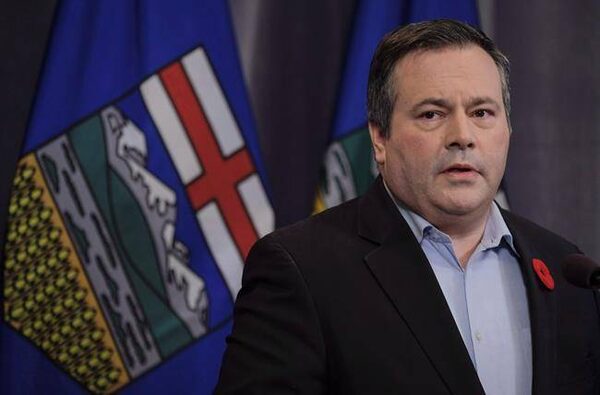
The New Democratic government’s proposals are in direct response to the rise – and success – of third-party financing vehicles funding its opponents, particularly the United Conservative Party under Jason Kenney.Jeff McIntosh/The Canadian Press
Alberta is tweaking regulations designed to limit the amount of influence "dark money" has in the province's politics – legislation meant to close loopholes the government created in its first two attempts to reform political financing.
The latest proposals target third-party financing vehicles, which have proliferated as contributors try to circumvent other laws governing fundraising, spending, disclosure and advertising in politics. The proposed changes, however, will not prevent unions and corporations from providing an unlimited amount of cash to some third parties or cap the amount of money individuals can contribute to certain organizations.
The New Democratic government's proposals are in direct response to the rise – and success – of third-party financing vehicles funding its opponents, particularly the United Conservative Party under Jason Kenney.
The province's ability to further tighten the rules – or end third-party operations completely – is hamstrung by constitutional rights, according to the government. British Columbia also has revised rules around third-party political spending and also said that the courts limit the steps the government can take. Ontario, too, has cracked down on third parties, but not to the same degree as Alberta and B.C.
"We did not ban union and corporate donations because of concerns around freedom of speech," Christina Gray said, Alberta's minister responsible for democratic renewal, told reporters on Monday. "We were very conscious of that."
The Alberta legislation covers two types of third-party advertising vehicles: political advertisers and election advertisers. The government wants to limit the amount of money political advertising organizations can spend between Dec. 1 prior to an election year and when the election is called. (Provincial legislation calls for fixed elections between March 1 and May 31 every four years, although the law is flexible. Alberta's next election is expected in May, 2019.) Third-party political organizations, under the proposed rules, would only be allowed to spend $150,000 in the newly regulated period. Further, money spent canvassing and organizing events such as rallies would count toward the advertising limit. Currently, political advertisers are free to spend without limit, and without restrictions on their activities, up until the election writ drops.
Third-party political advertisers, however, are still free to advertise as they choose outside of the regulated period. The rules around how much money they can collect and the sources of that cash remain unchanged. Third-party election advertising spending, now capped at $150,000 between the writ and voting day, also remains untouched.
The government also restricted what third parties are allowed to do. They are no longer permitted to sell memberships, raise money or collect information about voters unless they are volunteers or making eligible political contributions. This, the NDP said, will limit corporate and union participation in these areas.
Alberta's United Conservative Party said it wanted time to digest the legislation before commenting. Its leader, former federal cabinet minister Jason Kenney, transformed political fundraising in Alberta when he relied on third-party groups to collect donations for his leadership campaign. When Alberta banned union and corporate donations to political parties in 2015, third-party vehicles started to emerge because they could collect such contributions. Further, when the government introduced caps on the amount of money individuals could contribute to candidates or parties, that also meant contributors turned to third-party organizations to get around the limits.
The provincial government created a new office to enforce the rules. Alberta will soon have an Election Commissioner to investigate complaints and enforce the rules, Ms. Gray said. It increased the maximum fine for violating general offences to third-party rules from $500 to $5,000 and/or imprisonment for a term not exceeding one year.
 Carrie Tait
Carrie Tait